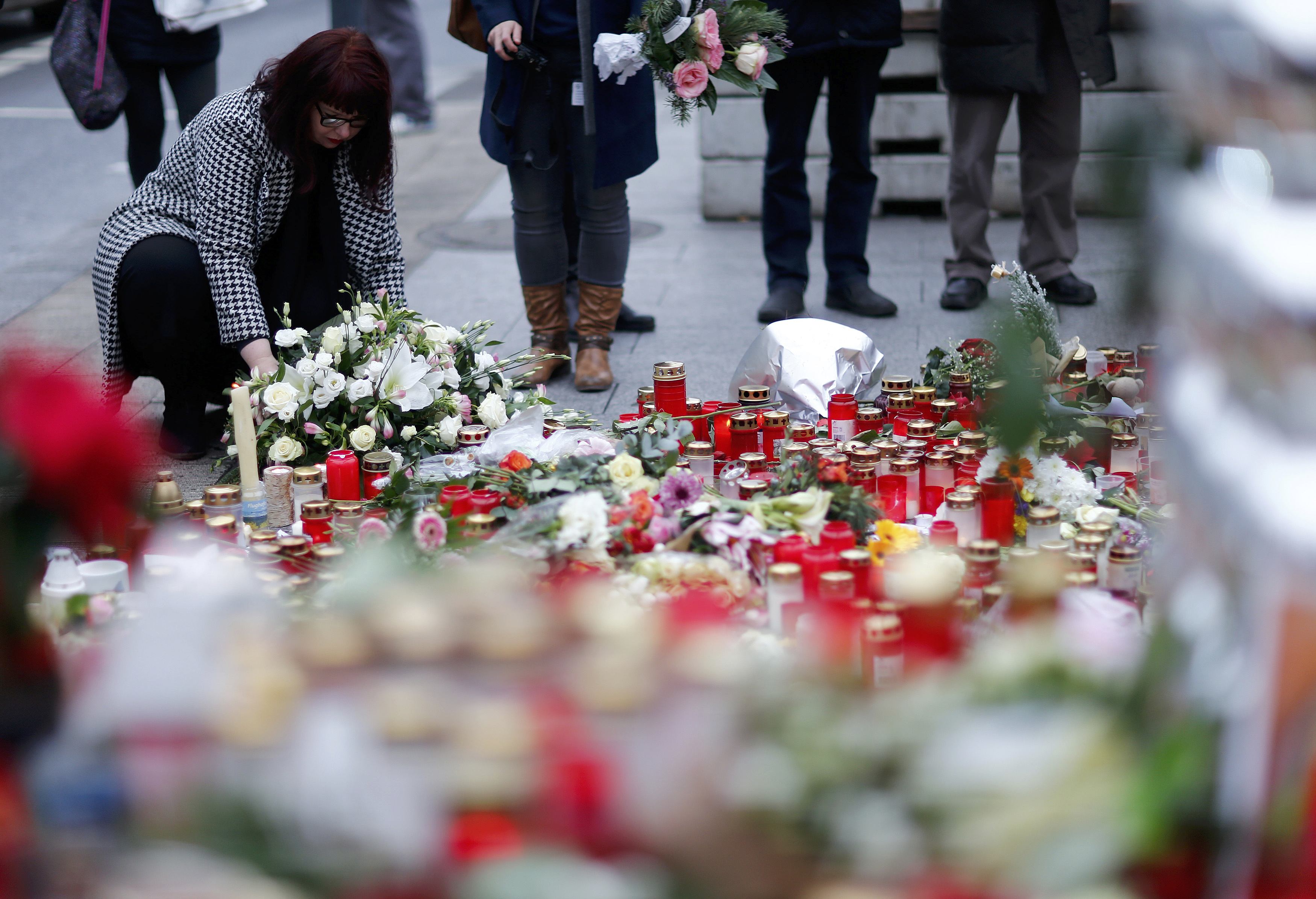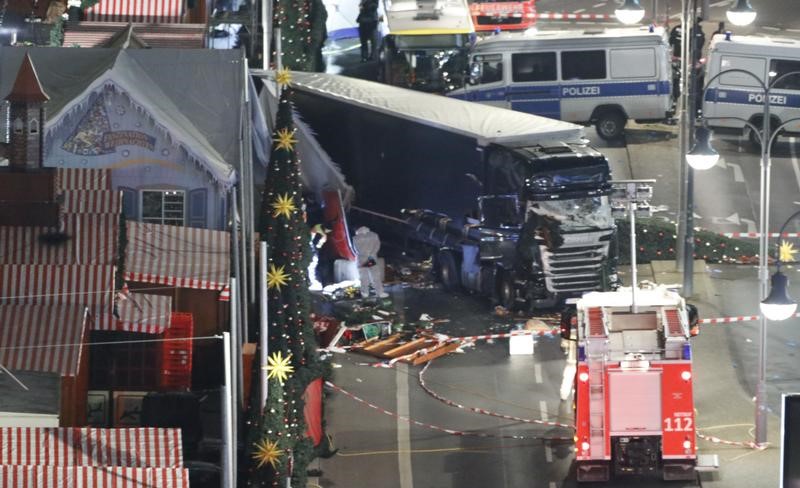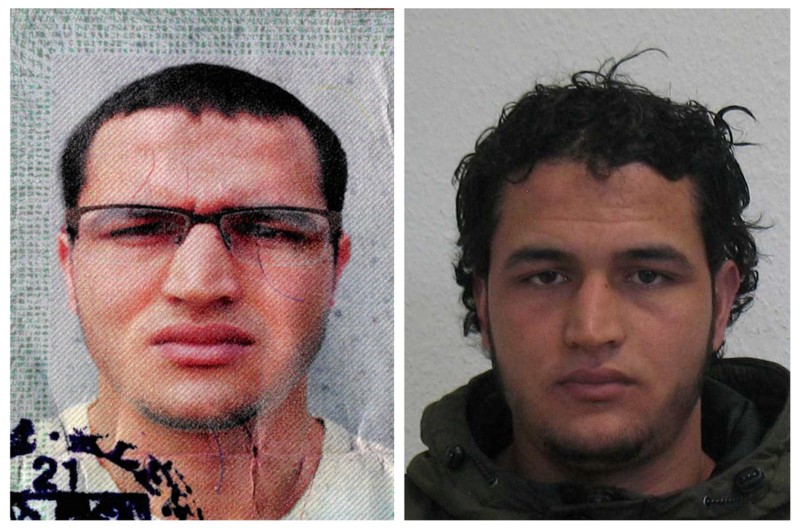
By Emilio Parodi and Antonella Cinelli
MILAN (Reuters) – Italian police shot dead the man believed to be responsible for this week’s Berlin Christmas market truck attack, killing him after he pulled a gun on them during a routine check in the early hours of Friday.
The suspect – 24-year-old Tunisian Anis Amri – traveled to Italy from France, triggering a spate of criticism from euroskeptics over Europe’s open-border Schengen pact.
A police chief said his men had no idea they might be dealing with Amri when they approached him at around 3 a.m. (2200 EDT) outside a station in Sesto San Giovanni, a suburb of the northern city of Milan.
Amri is suspected of driving a truck that smashed through a Berlin market on Monday killing 12 people, and security forces across Europe have been trying to track him down.
The truck mowed through a crowd of people and bulldozed wooden huts selling Christmas gifts and snacks beside a famous church in west Berlin.
Militant group Islamic State acknowledged Amri’s death and his suspected role in the German attack – for which it has claimed responsibility – through its Amaq news agency.
“The executor of the Berlin attacks carries out another attack on Italian police in Milan and is killed in a shoot-out,” it said.
Milan police chief Antonio De Iesu told reporters that Amri had arrived in Milan’s main railway station from France at around 1 a.m. and had then traveled to Sesto San Giovanni, where two young policemen approached him because he looked suspicious.
“We had no intelligence that he could be in Milan,” De Iesu said. “They had no perception that it could be him otherwise they would have been much more cautious.”
He failed to produce any identification so the police requested he empty his pockets and his small backpack. He pulled a loaded gun from his bag and shot at one of the men, lightly wounding him in the shoulder.
Amri then hid behind a nearby car but the other police officer managed to shoot him once or twice, killing him on the spot. Amri was identified by his finger prints.
ITALIAN JAIL
De Iesu said that besides the gun, Amri had been carrying a small pocket knife. He also had a few hundred euros on him but no cell phone. Amri once spent four years in jail in Italy and police were trying to work out if he knew someone in Sesto.
A judicial source had earlier told Reuters that police had a tip off that Amri might be in the Milan area and that additional patrols had been sent out to look for him. De Iesu denied that, saying only that the authorities had recently ordered tighter security and more identification checks across the country.
“The two policemen simply decided to check up on a foreigner,” De Iesu said.
Leading euroskeptics were quick to blame the Schengen open pact for allowing the fugitive to travel easily.
“This escapade in at least two or three countries is symptomatic of the total security catastrophe that is the Schengen agreement,” said Marine Le Pen, who leads France’s far-right, anti-immigrant National Front party and is running for president.
“I reiterate my pledge to give back France full control of its sovereignty, its national borders and to put an end to the consequences of the Schengen agreement,” she said.
Amri had been caught on camera by German police on a regular stake-out at a mosque in Berlin’s Moabit district early on Tuesday, Germany’s rbb public broadcaster reported. His movements thereafter are not clear.
He had originally come to Europe in 2011, reaching the Italian island of Lampedusa by boat. He told authorities he was a minor, though documents now indicate he was not, and he was transferred to Catania, Sicily, where he was enrolled in school.
Just months later he was arrested by police after he attempted to set fire to the school, a senior police source said. He was later convicted of vandalism, threats, and theft.
He spent almost four years in Italian prisons before being ordered out of the country after Tunisia refused to accept him back because he did not have I.D. papers linking him to the north African country.
He moved to Germany and applied for asylum there, but this was rejected after he was identified by security agencies as a potential threat. Once again he could not be deported because of a lack of identification documentation.

A woman lays flowers near the Christmas market at Breitscheid square in Berlin, Germany, December 23, 2016, following an attack by a truck which ploughed through a crowd at the market on Monday night. REUTERS/Hannibal Hanschke
A spokeswoman for Angela Merkel said the German Chancellor will discuss the deportation of rejected asylum applicants during a phone conversation with Tunisian President Beji Caid Essebsi.
The Berlin attack has put Europe on high alert over the Christmas period.
In the early hours of Friday morning, German special forces arrested two men suspected of planning an attack on a shopping mall in the city of OberhausenIn in the western state of North Rhine-Westphalia.
The men – two brothers from Kosovo, aged 28 and 31 – were arrested in the city of Duisburg on information from security sources, police said.
A police spokesman said there was no connection between the Duisburg arrests and the Amri case.
(Reporting by Michael Nienaber in Berlin, Anneli Palmen in Duesseldorf, Emilio Parodi, Elvira Pollina and Ilaria Polleschi in Milan, Antonella Cinelli and Gavin Jones in Rome; Writing by Crispian Balmer; Editing by Jeremy Gaunt)








